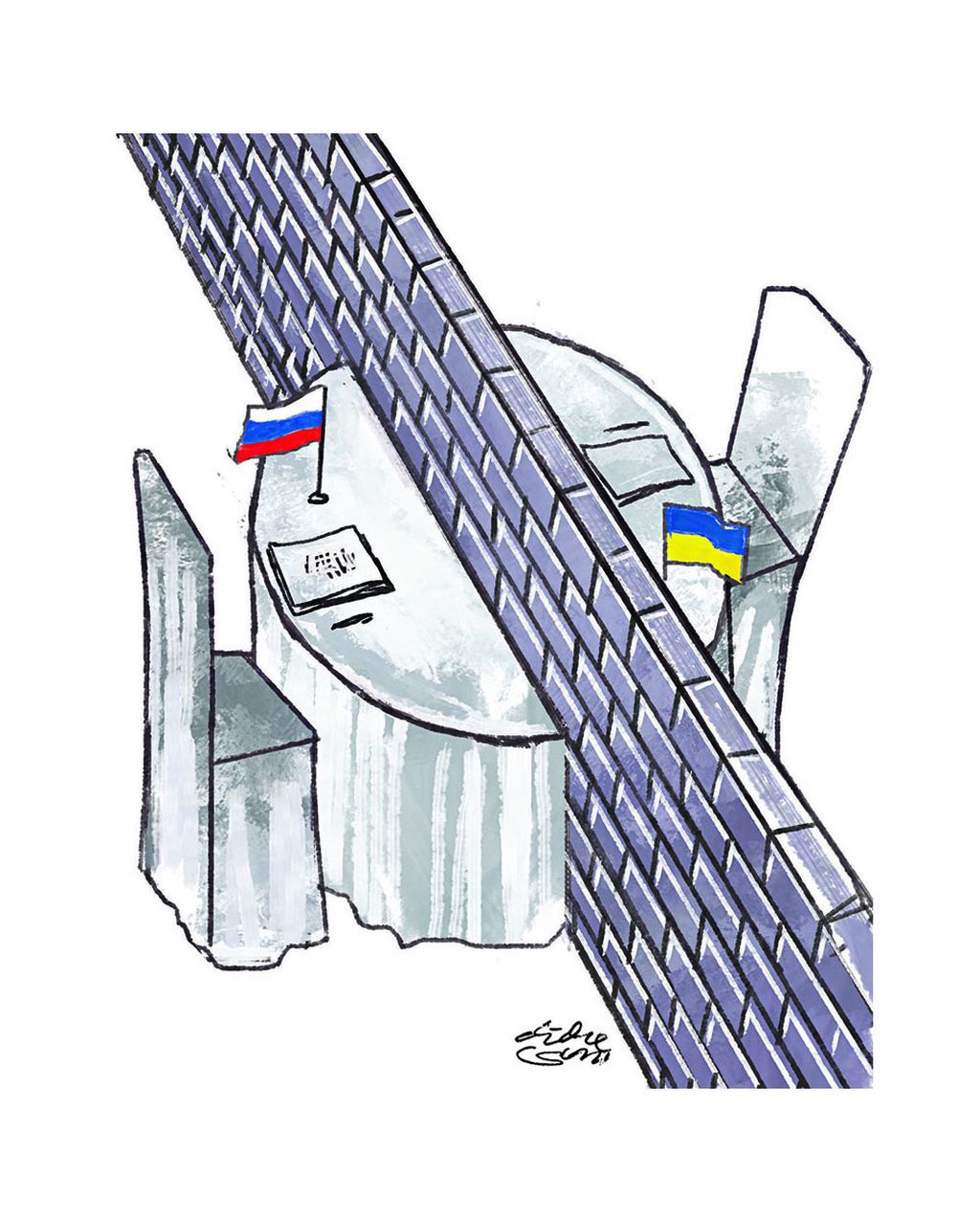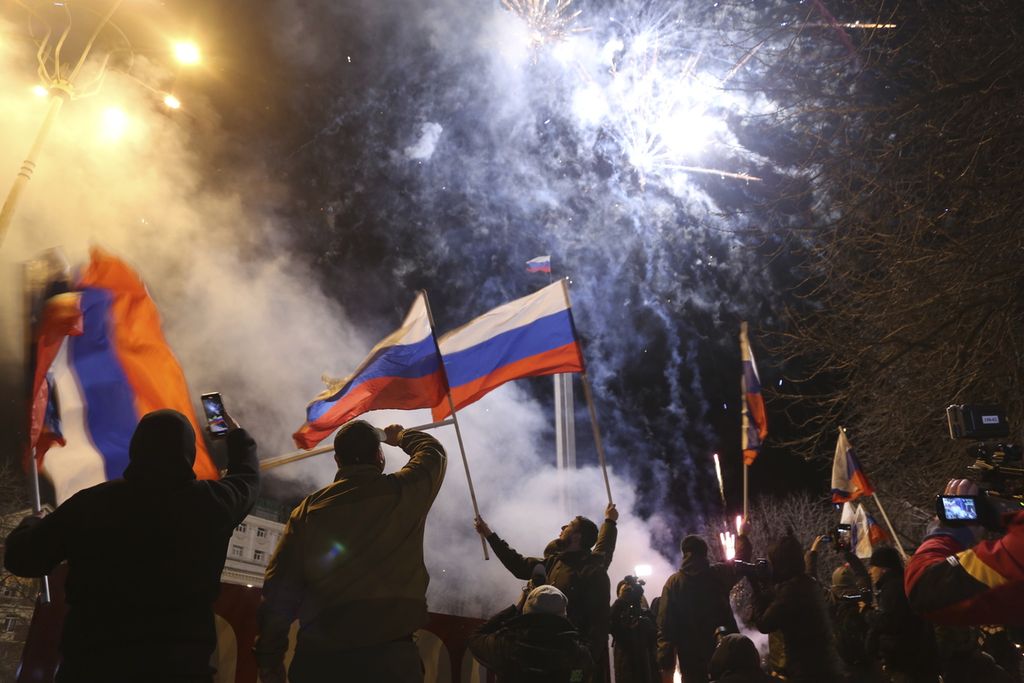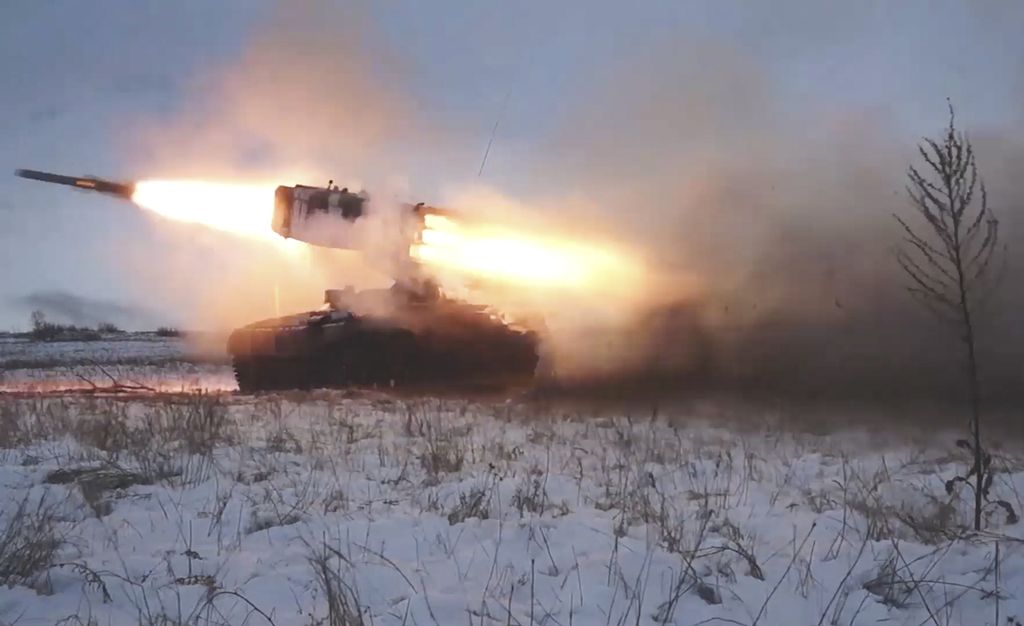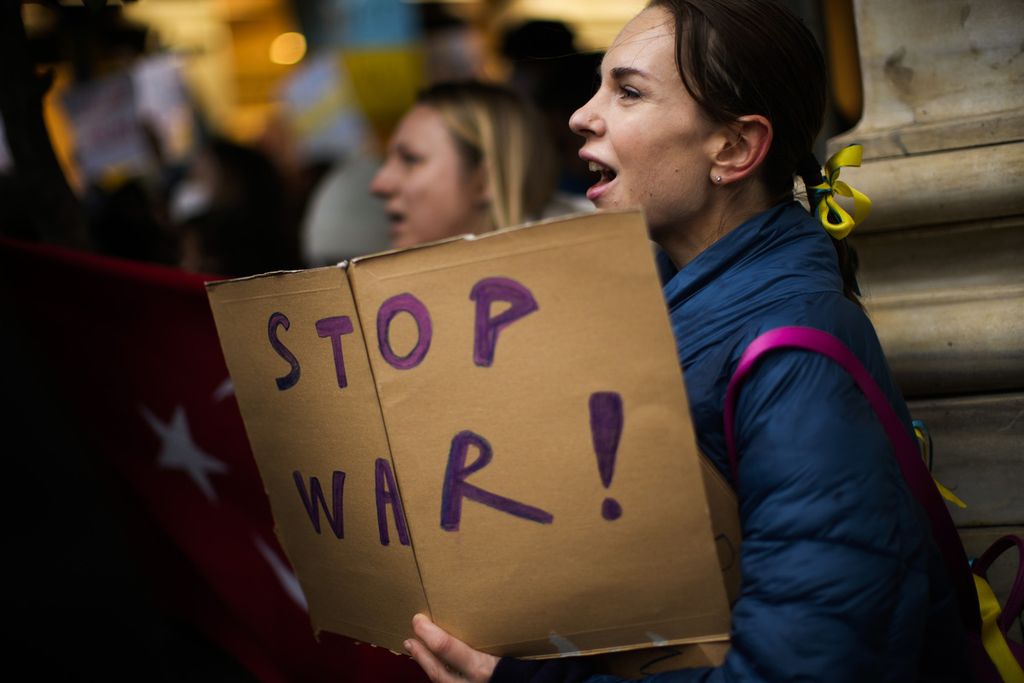Footnote on Quest for Peace in Ukraine
War, in other words, is said to have nothing to do with that country’s security needs (staging a war). If anything, security interests must be subject to the principles of democracy, dialogue and negotiation.

In this regard, the future of the armed conflict between Russia and Ukraine can be analyzed through the intercorrelation and dynamics of the two opposing political paradigms.
The first paradigm relates to the relationship between the concepts of peace and war. The second is the connection between democracy and security. Using the method of deduction, we can map out the attitudes of several countries towards the Russia-Ukraine war and classify them into three major groups based on the intercorrelation between these two paradigms.
War of narratives
The first group features those countries obsessed with the idea of democratic peace. This group argues that arm conflict stems from a country that does not respect democratic values and laws. War is said to be launched or originating in a country that is neither democratic nor respectful of the rule of law and international norms.
War, in other words, is said to have nothing to do with that country’s security needs (staging a war). If anything, security interests must be subject to the principles of democracy, dialogue and negotiation. According to this view, they may see that becoming involved in a war will be justified by the argument that they are helping the side targeted by military aggression from the so-called undemocratic side.
Also read:
> ‘Luxury’ Underground Residence in Kharkiv
> The Collapse of Our Wheat Barns
In the second group are those countries that combine the idea of peace with the fulfillment of national security needs. The central idea is that peace cannot be created if the security of the aggressor country is overlooked. This view concedes that staging war and armed intervention are evil acts and smack of human rights violations.
In other words, war is seen as having no direct correlation to democratic ideas.
However, at the same time, it sees that the need for national security is often the reason for war. Therefore, this group of countries also assumes that military aggression is justifiable and that they are not to blame when they use war as a last resort to fulfill their national security needs. In other words, war is seen as having no direct correlation to democratic ideas.
In the third group are those countries that put forward the idea of war as a way to fulfill national security needs. In other words, war is a justification for bringing about peace. The adage "give war a chance" may be appropriate to illustrate the political approach of this group of countries. Peace is decided on the battlefield, not through dialogue or negotiation. The strong and victorious will dictate the terms of peace, which is summed up in the aphorisms, “might is right” and “history is written by the victor”.
Given these three perspectives, we may identify the political stances of several countries. The United States and some of its allies appear to be influenced by a desire to realize the idea of democratic peace.

People celebrate the recognizing the independence waving Russian national flag in the center of Donetsk, the territory controlled by pro-Russian militants, eastern Ukraine, late Monday, Feb. 21, 2022. In a fast-moving political theater, Russian President Vladimir Putin has moved quickly to recognize the independence of separatist regions in eastern Ukraine in a show of defiance against the West amid fears of Russian invasion in Ukraine.
Such an approach can be seen from the support they have given to Ukraine, whether weapons, economic or humanitarian aid.
Russia is seen as an aggressor country that does not respect democratic values, international norms, negotiations or dialogue.
On the other hand, there are countries that might be grouped in the second viewpoint. Countries that may fall in this group are China and India. This is evident, for example, from their stances at the United Nations General Assembly and UN Security Council meetings.
While Russia can, of course, be grouped in the third perspective, Ukraine seems to be caught between each group’s narrative.
Finding the midpoint
To find the midpoint between the three political views is really a big task in the quest to escape the trap of these big narratives, which will subsequently open an opportunity and headway to restore peace in Ukraine.
In this case, there are three variables that may point to a way out from the impasse overshadowing the conflict. The first variable is geopolitics. The important thing is, it is related to the US’ hegemonic geopolitical ambitions. Can that country and its allies compromise their ambition and not expand the membership of the North Atlantic Treaty Organization (NATO), thus refraining from establishing a military base in Ukraine?
A related question is whether the US is willing to relent in its “neo-conservatism” foreign policy against Russia's national security needs.
The second variable is ideology. The main issue here relates to Russia’s historical claims. Is the country willing to give up its claims based on history that Ukraine was part of Russia (Soviet Union) in the past? A related question is whether the US is willing to relent in its “neo-conservatism” foreign policy against Russia's national security needs.
The third variable is economy. This is crucially related to the issue of Russia’s energy supply and the economic sanctions currently imposed on Russia by the US and European Union (EU). The big question over energy is whether or not European countries' dependence on gas supplies from Russia will lessen the EU's tough approach on Russia. The data shows that the EU member countries’ dependence on Russian gas supplies varies, which in turn is likely to bring about different attitudes towards Russia's invasion of Ukraine.
A concern arising over the economic sanctions is that the punitive measures may be unproductive and escalate uncertainty in the US and global economies (counterproductive policy). In this regard, the role of international financial institutions, such as the International Monetary Fund (IMF) and the World Bank, in providing technocratic assessment of the US and EU economic sanctions is crucial.

In this image taken from video and released by Russian Defense Ministry Press Service, A Russian rocket launcher fires during military drills near Orenburg in the Urals, Russia, Thursday, Dec. 16, 2021. Amid a buildup of Russian troops near Ukraine, Moscow has denied planning an attack on Ukraine but urged the U.S. and its allies to provide a binding pledge that NATO won't expand to Ukraine and won't deploy military assets there _ a demand rejected by the West.
It is worth noting that these two major institutions carry a mandate to create a more open world economy. The question is whether they are able to provide persuasive arguments against the economic sanctions currently imposed by the US and the EU in stating that the instruments of economic sanctions are rarely effective. Economic sanctions have, for the most part, heightened global economic uncertainty and suffering, largely for low-income groups around the world (see Nicholas Mulder, The Sanction Weapon, 2022).
Strategic resilience
These three variables are dynamic in nature and may change over time. An opportunity to find the midpoint between the three variables will arise if the situation reaches a culminating point, at which the war drags on with no side seeing progress on the horizon, or reaching a stalemate. At this point, each party becomes “tired” and may decide to have a dialogue.
In this case, one variable that could change the entire scenario is if there is a change in government in Russia.
When that point will be reached is difficult to predict. In this case, one variable that could change the entire scenario is if there is a change in government in Russia.
If this happens, the scenario may become more dynamic, though the regime change could lead to either better or worse conditions. However, what is certain is that if the war is prolonged, every country will have to rush to strengthen its strategic resilience. The ongoing developments in the Russia-Ukraine war is sending out a very clear message.

Demonstrators shout slogans during a protest outside the Russian consulate in Istanbul, Turkey, Friday, Feb. 25, 2022, after Russian troops have launched an invasion on Ukraine.
Globalization, with all its ideas of interconnectivity, does not come without its problems. It has several weak points, one of which involves international institutions that are not strong enough to control the behavior of big countries at the global level.
Makmur Keliat, Lecturer of International Relations at the School of Social and Political Sciences, University of Indonesia, and Senior Fellow of LAB45
(This article was translated by Musthofid)